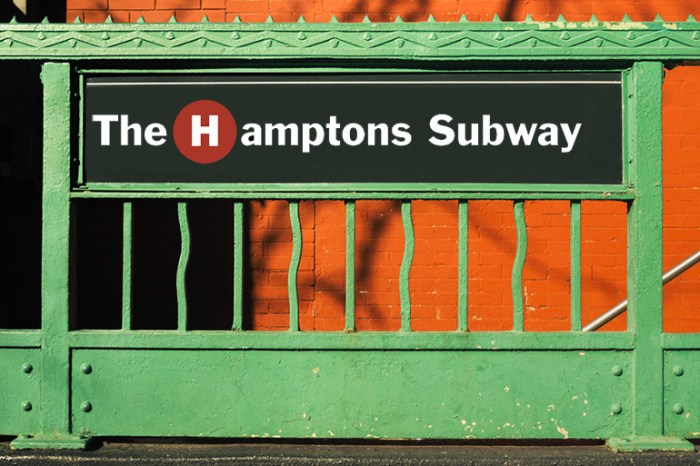County in Lurch as MTA Talks Pulling the Plug
The roughly 102,000 Nassau County residents who rely on the bus daily to get where they need to be may have a serious problem if the MTA goes ahead with a proposal to eliminate the $40 million it has been funding annually to keep Long Island Bus’s service going. As the transit authority struggles to fix its own huge deficit, it has ended up at odds with Nassau County, threatening cuts for which there would be no easy solution. The county is either facing the elimination of all service or has to explore a solution such as the privatization of the system.
Nassau County owns Long Island Bus, which was formed in 1973 when 10 private lines consolidated. The MTA has operated and maintained the bus system on behalf of the county since that time. Aaron Donovan, spokesperson at the MTA, explained to Anton Community Newspapers, “This was under an agreement that the county is to provide funding for all LI Bus expenses not covered either by the fares that riders pay or any subsidy from the state. So, the MTA is able to ask the county for additional funding if needed to cover expenses.”
Donovan could not comment on behalf of the MTA about exactly what the authority is planning or how the details would unfold if it cut the bus system loose, but he said that between 1973 and 1999, the county fully funded the budget gap each year, making up for whatever fares and subsidies did not cover. However, he said, “In 2000, the MTA began shouldering a much larger portion of those costs. Considering the MTA’s own budget difficulties, we wouldn’t be able to continue subsidizing the bus system.”
The spokesperson provided background to the effect that the MTA has been working hard to reduce its own $800 million deficit. The authority has reportedly cut hundreds of millions from the overall MTA family budget in recent time.
“There have been painful decisions as far as service reductions this year,” he said.
Donovan and Veronica Venterpool, associate director of the mass transit advocacy group The Tri-State Transportation Campaign, both emphasized that public transportation operates at a loss as a rule. Around the world, not just in Nassau County, they both explained, it has to be subsidized by funds from somewhere other than fares. The only ways to reduce a deficit like the one facing LI Bus are either by reducing service or raising fares. In the case of the bus, neither seems to be an option the MTA is willing to take.
“It’s never gotten this bad before,” Venterpool told Anton Community Newspapers. “This is the worst proposal we’ve ever seen, with the MTA threatening to cut all funding and Nassau talking about privatization. These are not sound options. Eight percent of residents in Nassau County do not own cars and rely on the bus. What happens to them?”
While the MTA has indicated that it would not object to privatizing the system, advocacy groups like Venterpool’s see it differently.
“Privatization will do a lot of harm to the bus riders on Long Island. For starters, the bus riders will lose the free transfers they get with Metrocards – this will become a two-fare system [between Nassau and the city],” she said. Opponents also fear that there is no buffer against fare hikes and bad service, with private lines having no accountability.
Venterpool added, “LI Bus was a system of private lines in the first place and they decided to do away with them and consolidate – the reason being that it was a very inefficient system. Service was not reliable. To revert back to that ignores all the initial problems that led to where we are today. It would be a huge disservice…”
County Executive Edward P. Mangano has called the MTA’s plan to shed the bus system “outrageous.” He has promised to form a committee that will work on a privatization plan.
“I am offended by the MTA’s threats and pure arrogance,” Mangano said, “and for that reason we will begin to explore the privatization of LI Bus as several cities and states have begun to do… One thing is for certain: my administration will exhaust every avenue to make sure those who rely on the public bus system for their transportation are not further disenfranchised by the MTA.”
Vision Long Island is a “smart growth” advocacy group focused on governments and businesses working together toward better functioning and profitable communities. The group released a report in response to the MTA debacle sharing the fact that major cities in the U.S. and abroad have found success in privatized transportation.
The Vision Long Island release shared: “[A] Manhattan Institute study found that in Los Angeles, 21 percent of the bus routes are awarded through competitive bidding, resulting in a 40 percent cost savings. Houston contracted out 12 percent of its lines and saved 26 percent; San Diego privatized 44 percent, for a 33 percent savings.”
The release also reported that, according to a study done by Rutgers University, suburban bus routes in Prague, Czech Republic, are run by private operators under contract with the government transit system. “While the government sets the overall fares and regulating policies, the private corporations have considerable managerial independence in the actual operations,” it said. “Even with longer routes and lower vehicle occupancy in the suburbs, the lower costs of private run services is able to operate with minimal subsidies.”
Whatever possible solutions are awaiting Nassau riders, the challenge will be clearer this week when the MTA formally announces its new four-year financial plan and the details on how a cut in funding would play out this January.


































